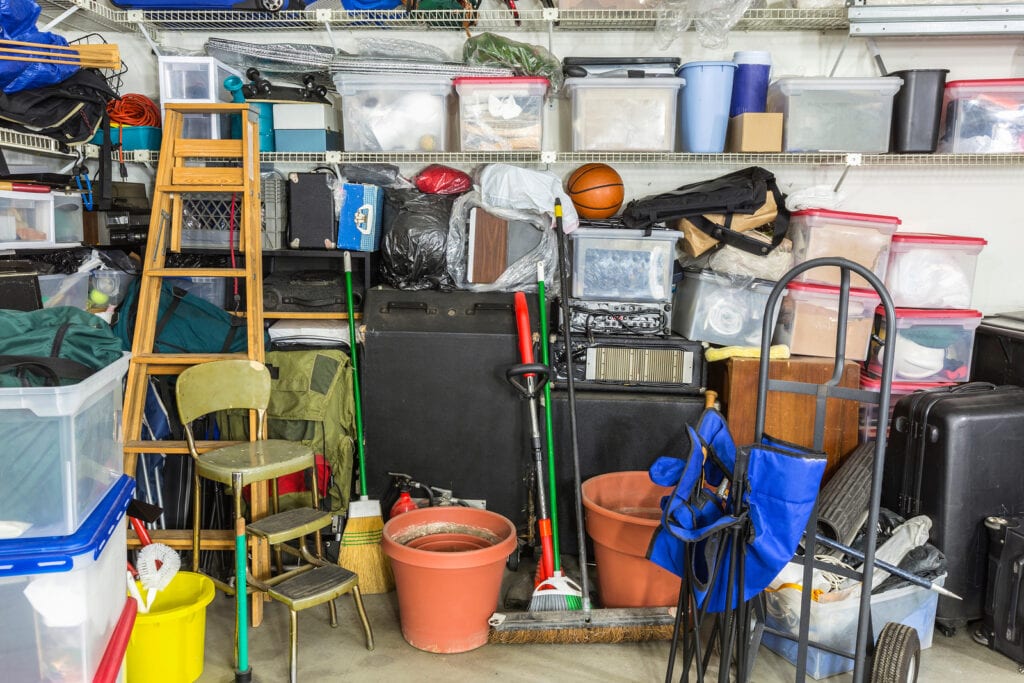How Shifting Roles Between Seniors & Their Adult Children Can Make or Break a Downsizing Move

Moving under any circumstance is a challenge. But, facing a downsizing move has its own unique set of issues, many of which can come as a complete surprise to the seniors and their family.
I got my first taste of this when I helped my own Mom and step-father on their first downsize move back in 2008. Boy, was I in for a big surprise!
It didn’t take long before I recognized some unexpected emotional and psychological changes in my parents, especially during the pre-move/purging stage, that I hadn’t seen in previous moves.
One of those changes was the startling shift within the traditional roles between parent and child.
My mother had always been a go-getter. She’d raised two kids on her own after being widowed at a young age, had an amazing professional career and could pretty much tackle any challenge that was thrown her way with grace and humor.
So, when I started to witness the cracks in the “Don’t worry, honey, I’ve got this!” façade, it quickly got my attention.
At 85, she’d lost a lot of her physical strength and too many details easily confused or overwhelmed her. This made decisions about what to keep, and what to let go of, painful and arduous.

So, what do adult kids do when they see their aging parent struggling? They step in and try to help, right?
Naturally, we want to make a transitional move process less stressful for our loved ones. It’s a no-brainer to want to take over the hard stuff, let them rest on the sidelines for a change and show them what great kids they raised!
Unfortunately, despite the best intentions behind the effort to help, it only ended up increasing the stress of the experience. Why?
What I didn’t understand at the time was my Mom and stepfather felt I was questioning their capacity and leadership role as parents. The role of parent and child had suddenly, and unintendedly, reversed.
Of course, that was the last thing I wanted them to feel, so I had to take a step back and take a hard, unwavering look at what was at play here.
If you’re facing a similar situation with a parent, or you are a parent that is experiencing this with your adult child, I’d like to share with you what I learned personally, as well as professionally, from my clients as a senior downsizing specialist and transitions life coach, giving you perspectives from both sides of the family tree.
The Adult Child’s Perspective

Most seniors in their late 70’s, 80’s or 90’s have at least one or more significant health issues that prohibit them from tackling an entire downsizing project on their own. It could be a back or knee problem, a heart or breathing condition or other issues.
So, when we see our parents feeling overwhelmed, exhausted or hurting, it’s natural that we would want to jump in to help with the physical labor and detail management.
Our minds race to address the marathon of questions that come with a downsizing move. What can they take to their new home? Will it all fit? What do we do with all the stuff that’s left over? How do we find a good mover? How long will it take to go through everything?
Some families try to take the process on commando-style, rushing in like an army of ants to get it all done over a long weekend or other unrealistic timeline.
There are many reasons this process usually takes weeks or even months, especially if the home is larger and there is a LOT of accrued stuff to go through.

Many Baby Boomer adult children are still working full-time jobs and may even have school-aged children still at home to care for. They may, or may not, live near Grandma and Grandpa, so taking off long stretches of time for this kind of project just isn’t an option for many.
Here’s where the train can start to leave the tracks.
Understandably, when the family is on a tight timeline, trying to juggle work and children of their own, they’ll typically feel an urgent need to find the quickest and most efficient path to getting through the process.
Out of necessity, practicality takes over. Decisions need to be made quickly. At the most basic level, it becomes a process-driven experience.
For that reason, patience starts to quickly thin as soon as they see a parent making decisions at a much slower pace than they feel is realistic.
The Seniors Perspective

For the senior, their viewpoint is quite different. It’s an emotionally-driven experience more than getting from Point A to B.
For them, like it or not, this process becomes one big “life review”.
They may not have seen an item for decades, lost deep in a long forgotten box in a garage or attic, but when found again, it suddenly becomes their most “priceless” possession.
They couldn’t possibly part with it! Why? Because it’s tied to important, forgotten memories that suddenly rush to the surface of their consciousness, like a tsunami of life experience.
This makes no sense to their kids, especially when it’s clear it hasn’t been used for years (based on the dust layer that’s covering it). But, time and time again, the parent will inevitably respond by saying “No! I use that all the time!” or “I may need that next week”.

What the adult child may be misunderstanding as stubbornness, though, is really more about how we humans process change.
When a person feels like their whole world is being ripped out from under them, it’s not unusual for them to cling to things that represent comfort, regardless of whether they truly need it or use it with any regularity.
For many, they may have lived in the same home for decades. They raised their kids there, spent countless hours entertaining friends and lovingly collected priceless treasures to fill every nook and cranny over their lifetime.
So, for many seniors, downsizing represents loss, sadness and grief because what they are really doing is saying goodbye to large time aspects of their past.
They may also harbor fears about an uncertain future, especially if the downsize move was precipitated by the loss of a spouse or a sudden change in health condition.
If the adult child doesn’t understand these psychological and emotional aspects behind their parent’s behavior, tempers and impatience can inevitably start to flare. Unfortunately, the harder the senior is pushed, the more exhausted and emotional they become.
Instead of expediting the process, the senior will often freeze, unable to make any decisions. They just shut down, overwhelmed by the changes around them.
If there’s a really short deadline, the adult child will usually feel they have to continue to push forward and start making decisions on their own. That creates a backlash of additional resentment and anger by the parent.
It’s a vicious cycle that’s entirely avoidable.

What’s important to remember here is understanding that indecision is simply a coping mechanism: a reflection of fear, of perceived loss and a temporary inability to process information due to overwhelm.
Given a little extra patience, a lot of compassion and good listening skills, a child can help their parent by putting the experience into a more positive context by not by forcing the process, but instead by acknowledging it.
No matter the age, we are creatures of habit. Moving out of our comfort zone, especially a place we’ve loved, involves enduring a period of vulnerability until we feel we can get a foothold on our world again.
This is one of the biggest reasons preparing for a downsizing move should be done months before an actual move occurs. Slowing the process way down may be a little frustrating for family members initially, but it can significantly reduce the sense of overwhelm many seniors feel while making it a much more enjoyable experience for everyone involved.
They’ll feel better when they can act from a place of self-empowerment and it’s way easier on them physically. This may require starting the process years in advance of an anticipated move. But, that’s ok!
Given adequate time and space, seniors will usually come to terms, on their own, with the reality that many of their “precious” items have out lived their relative usefulness and willingly release them.
So, my friend, until next time….stay safe, stay healthy and stay strong!
Deborah
